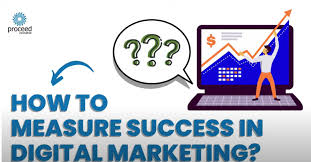In the fast-paced world of digital marketing, success hinges on more than just creativity and strategy—it’s about understanding and mastering the metrics that truly matter. Whether you’re promoting a product, service, or brand, knowing how to measure your efforts effectively can make all the difference in achieving your goals. Here’s how you can navigate the landscape of digital marketing metrics:

- Define Clear Objectives: Before diving into metrics, outline your objectives. Are you aiming for brand awareness, lead generation, sales conversions, or customer retention? Each objective requires different metrics to gauge success.
- Key Performance Indicators (KPIs): Identify the KPIs that align with your objectives. These could include website traffic, click-through rates (CTR), conversion rates, social media engagement, or return on investment (ROI). Focus on metrics that directly reflect progress towards your goals.
- Tools and Analytics: Utilize tools like Google Analytics, social media insights, or marketing automation platforms to track and analyze data. These tools provide valuable insights into user behavior, campaign performance, and audience demographics.
- Conversion Tracking: Implement conversion tracking to monitor specific actions users take, such as purchases, sign-ups, or downloads. This helps you understand which channels and campaigns are driving valuable outcomes.
- ROI Calculation: Calculate ROI to determine the profitability of your marketing campaigns. Compare the costs incurred with the revenue generated to assess the effectiveness of your investments.
- Continuous Optimization: Use metrics to continuously optimize your campaigns. A/B testing, for instance, allows you to experiment with different strategies and determine which yields better results.
- Benchmarking and Reporting: Compare your metrics against industry benchmarks and create regular reports to track progress over time. This not only keeps stakeholders informed but also guides strategic decision-making.
- Adaptability: Stay adaptable to changes in digital platforms and consumer behavior. Monitor emerging trends and adjust your metrics and strategies accordingly to stay ahead of the curve.
Mastering digital marketing metrics is an ongoing process that requires vigilance and adaptability. By understanding the nuances of each metric and leveraging them effectively, you can not only measure success but also drive continuous improvement in your digital marketing efforts. Remember, the key lies in translating data into actionable insights that propel your business forward in the digital age.
 Clear My Certification All Certification Exam Answers
Clear My Certification All Certification Exam Answers
